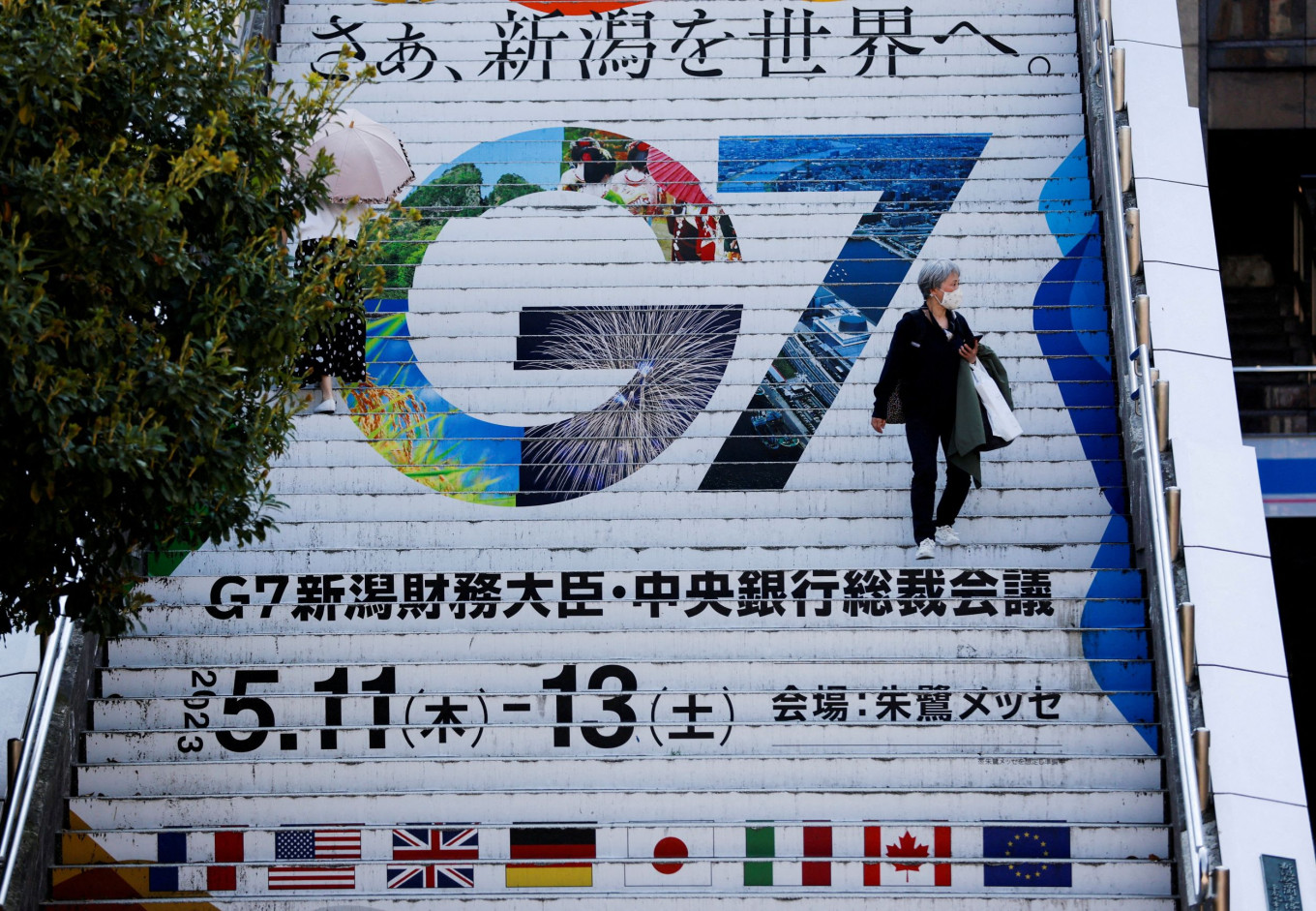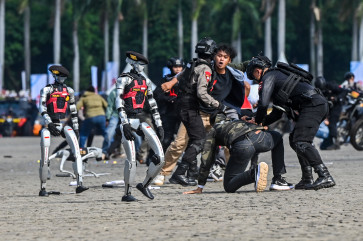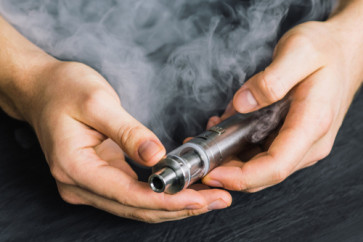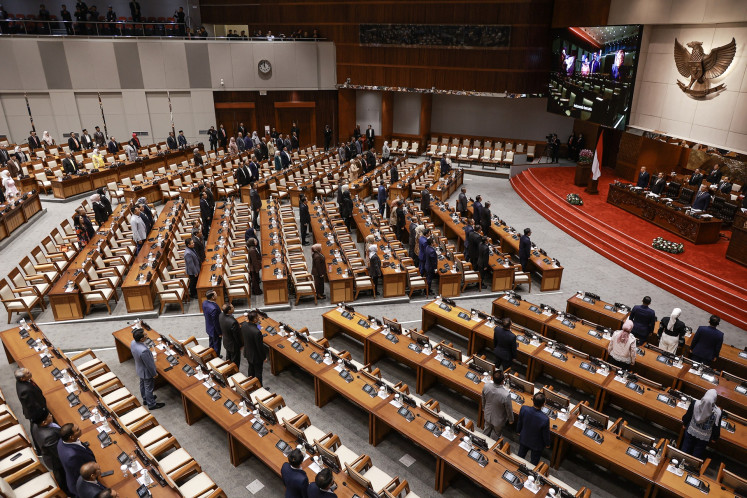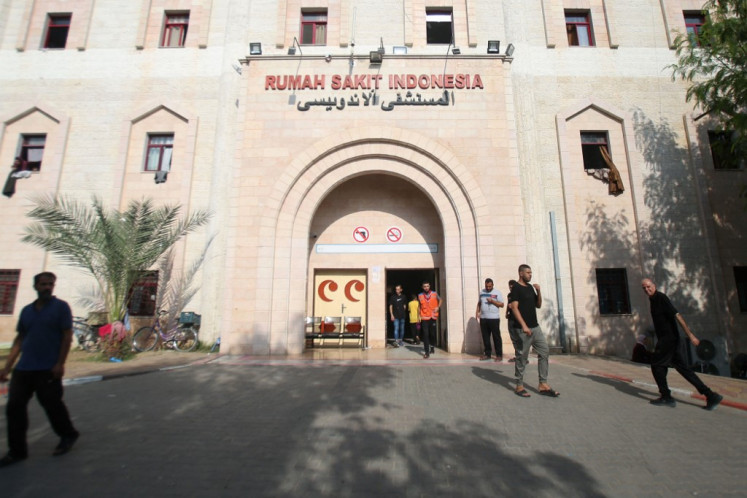Popular Reads
Top Results
Can't find what you're looking for?
View all search resultsPopular Reads
Top Results
Can't find what you're looking for?
View all search resultsG7 eyes targets to mitigate critical mineral import risks
The Group of Seven (G7) industrialized nations have begun detailed discussions aimed at reducing their reliance on imports of critical minerals from specific countries, with China in mind, Japanese government sources said.
Change text size
Gift Premium Articles
to Anyone
T
he Group of Seven (G7) industrialized nations have begun detailed discussions aimed at reducing their reliance on imports of critical minerals from specific countries, with China in mind, Japanese government sources said.
The Japan News reported that the G7 countries will set targets for the level of dependence on minerals whose export is dominated by particular countries and increase imports from other countries to eventually meet their goals.
The G7 countries also want to cooperate to diversify their supply systems.
Critical minerals are indispensable for a green transition, as they are used in electric vehicles (EVs), solar panels, storage batteries and other devices that play crucial roles in economic activities. Their supply sources have been concentrated in certain countries, including China.
Japan has designated 35 minerals, including lithium, nickel and cobalt, as critical minerals to be stockpiled.
Economic security was a key agenda item at the G7 Hiroshima Summit in May, and the leaders agreed to cut reliance on China for critical minerals. Their communique states that “we invite the International Energy Agency (IEA) to make recommendations by the end of this year on options how to diversify the supplies of energy and critical minerals as well as clean energy manufacturing.”
The IEA is currently selecting critical minerals whose international sources should be diversified. It is to finalize the recommendations by the end of this year.
As a concrete measure to reduce overdependence, the G7 countries have considered joint investments in other resource-rich countries. Japan holds the G7 presidency this year and will aim to take the initiative on this issue.
According to 2021 statistics from the Japan Organization for Metals and Energy Security (JOGMEC), Japan imports 81 percent of its lithium, the sum of lithium oxide and lithium hydroxide, from China.
China has particular strength in processing and refining critical minerals. According to 2021 statistics from the IEA, China’s global market share in refining was 58 percent for lithium, 65 percent for cobalt and 35 percent for nickel.
China has repeatedly engaged in economic coercion by restricting trade with rival countries, leading the G7 countries to work together to reduce the risks of overdependence by increasing their sourcing of critical minerals from other countries.
Amid a global call for an energy transition toward renewable energies and a growing appetite for EVs, there have been growing efforts among countries to form alliances to secure the critical minerals.
At the United Nations Biodiversity Conference (COP15) in Montreal last year, Canada led a group of countries to form the Sustainable Critical Minerals Alliance, an alliance that will support environmentally sustainable and socially inclusive and responsible mining, processing and recycling practices. The members include most of the G7 nations, Canada, France, Germany, Japan, the United Kingdom and the United States, with the addition of Australia, the world’s largest lithium producer.
Indonesia and Australia also recently announced a partnership that aims to boost lithium import to Indonesia and accelerate EV production in the country. Although Indonesia is the world’s largest producer of nickel, the country still needs other critical minerals like lithium and cobalt to be able to produce EV batteries.
EVs are pushing up worldwide demand for battery metals, but those critical resources are concentrated in very few countries, causing concerns about supply chains.
By 2030, batteries are expected to account for 95 percent of lithium demand, and total needs will grow annually by 25 to 26 percent to reach 3.3 million to 3.8 million tonnes of lithium carbonate equivalent, according to a report published by consultancy McKinsey last year.
Roughly 90 percent of the world’s lithium comes from just three countries, according to the World Economic Forum, 52 percent from Australia, 25 percent from Chile and 13 percent from China.

